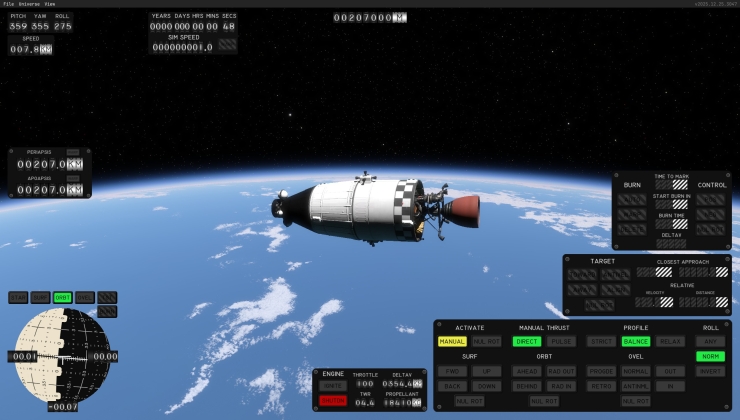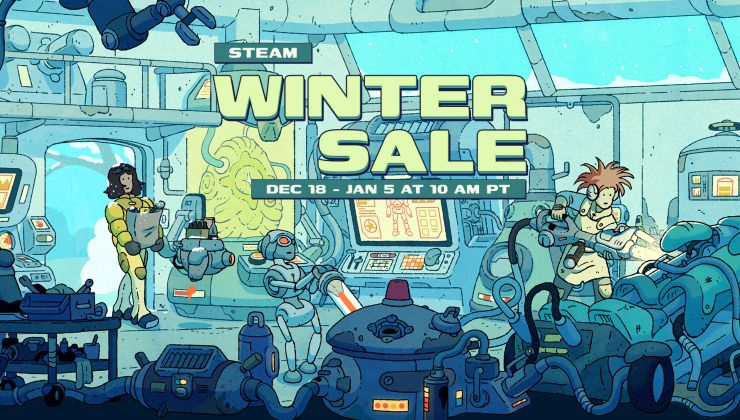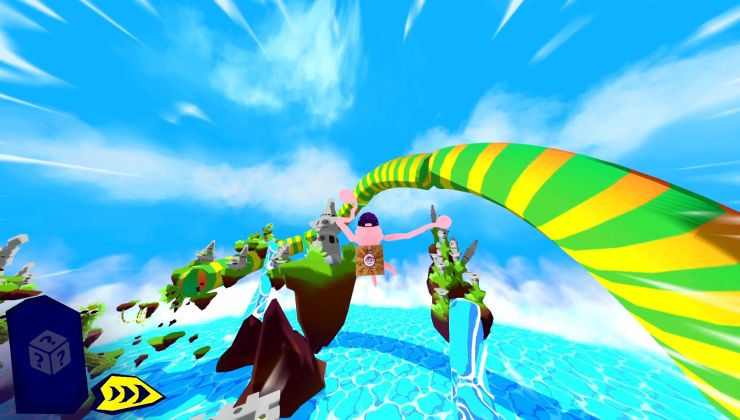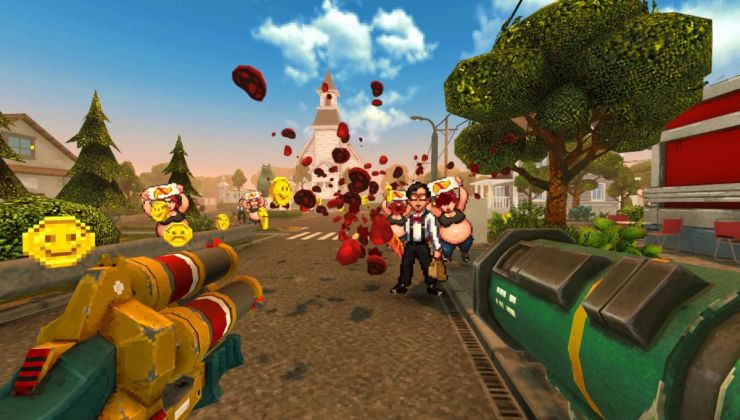While Steam continues to do well with it being the most popular games store, it seems CD PROJEKT Group's store GOG is really starting to struggle.
CD PROJEKT recently released their latest financial results, along with a call with investors that went over how the whole business is doing. It's not all bad news for them, since they saw overall 38% more sales revenue compared to the third quarter of last year. On the GOG side though, it posted increasing losses and so it's going to be restructured.
Over the current year to date it appears GOG has seen losses of about $2.21 million, which is pretty bad considering the 1.37 million they gained during the same period last year.
They've said that GOG "should focus more on its core business activity - which means offering a handpicked selection of games with its unique DRM- free philosophy" and so there's going to be some changes to the GOG team, with some moving over instead to CD PROJEKT RED. Additionally, they've "initiated reorganization of GOG’s operations" to focus on the "core business" and they're hoping this will "improve its financial effectiveness in 2022".
It's not really surprising, when you think that Epic Games continue to desperately try and turn a profit by pulling more customers to their store and even they don't expect to turn a profit until at least 2024.
Quoting: kaimanI find it rather difficult to rack up such a loss from selling digital goods....$2M is about 10 developers for one year when you think about industry salaries, benefits, equipment, training, etc.
Could this pertain to GOG Galaxy and the associated backend functionality for achievements, cloud-saves and such? Though even that doesn't look like something you could sink $2m and likely more, assuming the actual selling of games is profitable.
My own feelings about this news have pretty much all been represented by others:
- I like GOG but am held back from liking it more because Linux users are given minimal support, like that cousin you don't like but your mom makes you buy them a gift every year anyway, so you get them the cheapest thing you can find.
- I don't have to run my own cloud server to share game saves with Steam.
- Proton games are often click-to-play, whereas the GOG version requires me to fiddle with minigalaxy + Lutris so I can install the game easily and then actually run it
So yeah, Linux native games that are either single-player or LAN multiplayer are the only thing you should buy on GOG to have a convenient experience.
I have a couple gripes for Steam as well, but I am not going to write out a complete comparison.
If I can't crosscheck whether I already have it on steam, it's too much a hassle.
Last edited by Shmerl on 30 Nov 2021 at 3:36 pm UTC
Quoting: GuestTheir point is the convenience of seeing quickly whether you own a game. I have the same annoyance when the Humble Choice comes out each month, because while Humble allows Steam linking for redeeming the games, there's no library search function. So I have to grab the title, visit steampowered.com, enter it and see if I own it. Doing that for 10-12 games... it's just a bit tedious.Quoting: SeegrasI mostly stopped buying from other stores (except itch.io; and the rare DOS-game on gog) simply because I lost the overview on what I already have.....you can't login to gog.com and view what games are in your library? I find that difficult to believe. I'm hoping I'm missing something here, or that you're not explaining it clearly enough, because otherwise this is a prime example of making up things to justify wanting to buy elsewhere. Just say you want to buy elsewhere in that case, no need to justify it.
If I can't crosscheck whether I already have it on steam, it's too much a hassle.
Not as bad as Itch though, which lets you re-buy games you already own with no warning whatsoever. Just buy it over and over again, no problem. So flawed. And of course, since there's no way to see what you own on Itch.... nah, I gave up. It might be an open source client, but it hasn't evolved significantly at all in the years since it arrived. Just such a shame.
Is GOG really customer centric? One the most voted feature is Linux support in Galaxy. It was said to be coming soon for ages (something like 7 years) and is still marked "in progress" ( https://www.gog.com/wishlist/galaxy/release_the_gog_galaxy_client_for_linux ) . I know the usual arguments: we represent only a small faction of the market, around 1% of PC gamers according to steam. But when your main selling point is your values, treating customer like that is not a good signal to emit. Let's be serious, it is not a difficult task! Itch.io, whish has far less resources than GOG, has a Linux client for years! My point is that if they're OK to treat us like that, they're probably not as attached to their values as they say.
Is GOG really attached to DRM-free? There have been a lot of issues regarding DRMs on GOG over the years. The last one is Hitman but there was also Armello whose GOG edition had to be renamed "DRM-free" edition to signal the lack of features, etc. Competing with Steam is overly hard. As a store, you either have to avoid the competition by finding a niche like DRM-free for GOG or game jams/prototypes for Itch, or burn a lot of resources in free games and exclusivity, like Epic, until your customer base is large enough for the store to be profitable. GOG is stuck. The DRM-Free niche is too small for them to grow. They improved the user experience (Galaxy is all about providing a steam-like user experience with cloud saves, achievements, etc) and hoped it would be enough for gamer to switch. But for a store to be attractive, it has to offer something: more games, cheaper games, better gamer experience. Unfortunately for GOG, most gamers are perfectly OK with noninvasive DRMs such as Steam. If they want to grow, they have to follow the Epic way. I'm pretty convinced that GOG keeps the DRM-free thing because they know it's their only selling point.
Is CDPR really attached to their values? I know, CDPR is not GOG, but they're part of the same company and have the same DNA. CDPR had an excellent reputation but recent events showed that they're not that much involved in bringing quality and respecting their employees as much as they claimed. When most of your branding is about your values, such events hurts badly.
Of course there is no one single reason for GOG loosing attractiveness, but a fair amount of small ones. I sincerely hope that they'll get better because I still have a descent library there I don't want to lose. But I can't buy games on GOG anymore. Every time I do, I end up regretting it because everything in the GOG linux experience is awful from installing games with DLCs to updating them (you have to download every DLC as a file and install them by hand! in 2021!).
I've found friggin EGS to handle linux gaming better than GOG.
And their offline installer experience? Atrocious! Without 3rd party tools like lgogdownloader (awesome by the way), it would basically be unusable for the lack of a better word. This is of course not limited to linux gaming, but in general.
I whine and complain yet I still buy from them. I don't mind the workarounds but really come on, they are supposedly providing a service.
About the news, I am amazed at how tiny the profits (or losses in this case) are. Though I shouldn't be. Who would have thought that selling mostly old 5 euro games at an 80% discount to a handful of gamers and the old guard barely brought in barely any revenue? No wonder they tried to develop with Galaxy. Which then of course alienated the DRM free crowd.
I don't really envy the GOG team. And some of them should be polishing up their CVs right about now.
Quoting: scaineI have the same annoyance when the Humble Choice comes out each month, because while Humble allows Steam linking for redeeming the games, there's no library search function. So I have to grab the title, visit steampowered.com, enter it and see if I own it. Doing that for 10-12 games... it's just a bit tedious.I used to buy games from humble store, but I stopped, because they outright refused to implement a function of steam library sync to clearly see which games I own or have wishlisted. Going through sales is tedious as it is, I'm not going to convince myself to do it if they don't bother.
I've always liked GOG, they definitely put more love into their releases then most -- even if they're not always perfect about it. I was super excited for their GOG Galaxy 2.0 client when they announced it, but have been disappointed with it from the get-go and it doesn't seem like that impression will change; It struggles with large game collections, is slow, the technology they used to build it is non-portable / completely locked into windows, and while pretty is also very clunky. When I buy older games I buy from them because again, while not perfect, are way more likely to work better then lazy-seeming Steam versions of the same games. The DRM-free is great, though sometimes what "DRM-free" means -- and people disagreeing about that -- paints a target on their back like with the Hitman 3 debacle.
As far as Steam goes, like most others it's my main client. "Justifying" the monopoly -- frankly their competitors suck, pretty much all of them, Steam's client has glaring issues and always has but still manages to be the best of the bunch by a country mile -- 10 miles when viewed as a whole. Steam's store, supporting services, and client is dominant for more reasons then just being one of the oldest; It boggles my mind when people try and say they don't deserve their cut. Do they _need_ the cut? Probably not, they're super successful, and I'm sure some of the negative justifications are actually rooted in that. Do they justify it all the same? Yeah, probably. Even when people buy games elsewhere, dollars to donuts say the purchaser looked at the steam reviews/ratings before making a purchase.
I honestly don't understand why so many stores/clients suck these days, what the heck happened where new applications were designed to "be easy-ish with never-consistent UX but always be vaguely frustrating".
Quoting: scaineNot as bad as Itch though, which lets you re-buy games you already own with no warning whatsoever. Just buy it over and over again, no problem. So flawed. And of course, since there's no way to see what you own on Itch.... nah, I gave up. It might be an open source client, but it hasn't evolved significantly at all in the years since it arrived. Just such a shame.[https://itch.io/my-purchases](https://itch.io/my-purchases)
Do not thank me. :)
Quoting: The_Aquabatnot surpised since Cyberpunk is a pretty bad game.Not sure what you mean. I've been playing it for a while (close to completing it) and it's a very good game. It feels smaller than the Witcher 3 in scope though.
Last edited by Shmerl on 30 Nov 2021 at 3:50 pm UTC
Quoting: GuestI've got 600 games on gog.com, ca 1000 on itch.io and 4500 on steam. And especially when it comes to bundles or specials, it gets too much a hassle to crosscheck.Quoting: seegrasIf I can't crosscheck whether I already have it on steam, it's too much a hassle.....you can't login to gog.com and view what games are in your library?
Edit: it's actually 947 games on gog.com and 5008 on steam.
And I have no idea how many on itch, because they don't tell me, but I bought the "Bundle for Racial Justice and Equality" which consists of 30 items on 58 pages plus one item (=1741), of which I don't know how many are computer games (many are TTRPGs or LARP-settings) and I also bought some single items over time.
Last edited by Seegras on 30 Nov 2021 at 3:59 pm UTC
Quoting: The_Aquabatnot surpised since Cyberpunk is a pretty bad game.What does Cyberpunk have to do with the success of GOG?
Quoting: ShmerlYeah - CyberPunk is actually pretty superb. Poor launch, of course. But since the 1.3 patch, it's been an excellent experience. Great graphics, decent story, excellent side-missions and most important of all, fun.Quoting: The_Aquabatnot surpised since Cyberpunk is a pretty bad game.Not sure what you mean. I've been playing it for a while (close to completing it) and it's a very good game. It feels smaller than the Witcher 3 in scope though.
Quoting: Alm888Ha! Yeah, I saw they'd added that a while back, but it only works for games you've bought directly from a game's page (and the list, oddly, doesn't show you platform support). But at least it match what you see in "Library / Owned Games" in the Itch client.Quoting: scaineNot as bad as Itch though, which lets you re-buy games you already own with no warning whatsoever. Just buy it over and over again, no problem. So flawed. And of course, since there's no way to see what you own on Itch.... nah, I gave up. It might be an open source client, but it hasn't evolved significantly at all in the years since it arrived. Just such a shame.[https://itch.io/my-purchases](https://itch.io/my-purchases)
Do not thank me. :)
But I've bought two bundles on Itch, which amounts to several hundred games/tools, and while I page through, or search those titles on that same page, there's no way to see them in the client. You have to go to the game's web page and activate it somehow - I forget how now, but when I realised I'd have to do so for 59 pages of games, I gave up.
But as I say, my main gripe is that while I bought, say, Nuclear Throne, on Itch about 3 years ago, I can still buy it again, while logged in, with no warning at all that I already own it. Now extend that to 59 pages of bundles... yeech.
Quoting: mao_dze_dunOh, come on. Did you just blame Epic for GOG's troubles? Liam, please :D.What... what did you read? Where did you read that?
Are you referring to where Liam notes that EVEN EPIC can't succeed with their millions of dollars, exclusives and free games, and somehow, in your head, turned that into "Liam blaming Epic" for GOG's failure?
Quoting: The_AquabatThat's a 1 year old video. And C2077 has way better story and characters than GTAV. Seamless dialogue, and the city is generally much more enjoyable to be in than any of the boring-ass cities in GTA. Is it a better game overall? Probably not, but it's much more my thing.Quoting: Shmerlseriously Physics effects are a bad joke? everything feels unfinished on cyberpunkQuoting: The_Aquabatnot surpised since Cyberpunk is a pretty bad game.Not sure what you mean. I've been playing it for a while (close to completing it) and it's a very good game. It feels smaller than the Witcher 3 in scope though.
https://www.youtube.com/watch?v=-LB5N8Eht2g
Quoting: The_Aquabatseriously Physics effects are a bad joke? everything feels unfinished on cyberpunkThat's not my impression from it. It can be still improved surely, but it's already pretty good.
Last edited by Shmerl on 30 Nov 2021 at 4:17 pm UTC











 How to setup OpenMW for modern Morrowind on Linux / SteamOS and Steam Deck
How to setup OpenMW for modern Morrowind on Linux / SteamOS and Steam Deck How to install Hollow Knight: Silksong mods on Linux, SteamOS and Steam Deck
How to install Hollow Knight: Silksong mods on Linux, SteamOS and Steam Deck